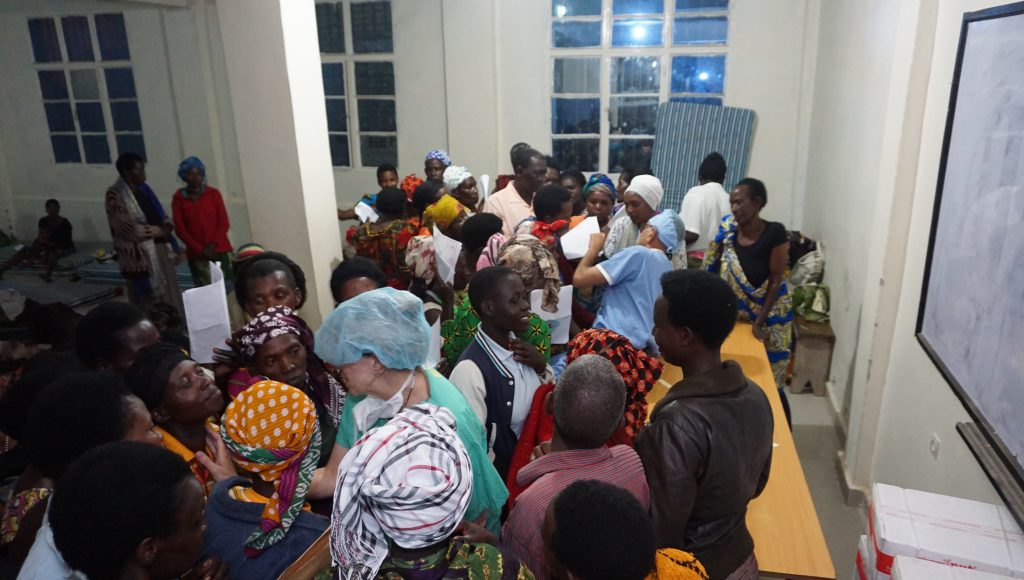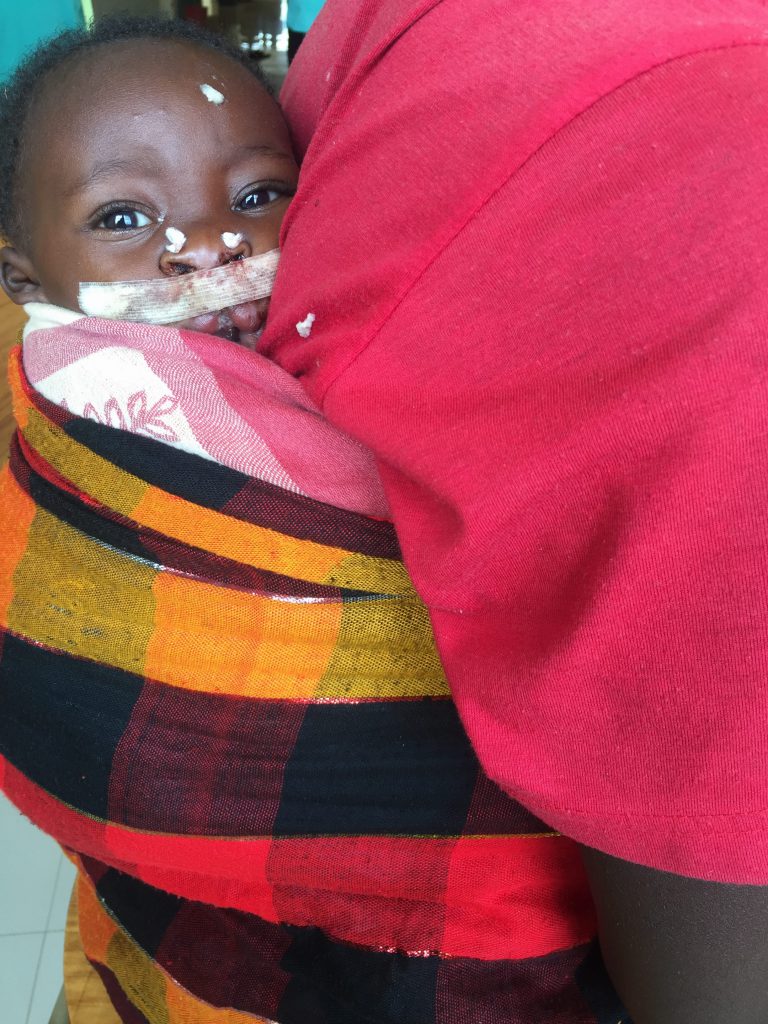Monday was a great day of surgery for the doctors of MMFC. Although the need for cleft surgeries is low, Drs. Aric Park, Merry Sebelik, and Jeremiah Tracy were hard at work with some slightly complicated cleft lip surgeries. Usually, babies with cleft palates have difficulty eating and breastfeeding. They are often malnourished not for lack of food, but rather because the openings in their lips constantly leak food and liquids. This is why often times babies with cleft lips–especially with two openings rather than one–are much slimmer than babies with no clefts. You can imagine the happiness of not only the nurses and doctors, but also the mother when the little babies wake up from their surgery in the recovery room and are able to finally latch on to the breast and feed. This was the case with little 8 month old Lea.
Lea and her mother had been waiting all day through the other cleft lip surgeries. The hallway was filled with the screams and cries of the little girl who was frustrated she was not allowed to eat before her surgery. Her worried mother skeptically followed directions, since she had seen other cases and babies delayed because they had eaten to close to their surgery time and it was unsafe to induce their anesthesia. The surgery went smoothly, and an hour and half later baby was in mom’s arms desperately searching for the comfort and nourishment of her breast. The smile on the mother’s face was priceless, “this is the first time she has been able to latch on”. We were all watching in peaceful attentiveness as the baby settled into a rhythmic suckling, completely forgetting about the pain as she finally satisfied her hunger.
Not all babies latch on so quickly and easily, others have difficulty using their newly sealed lips because they have never had to use the muscle. Eventually, they will learn how to gain control of the muscles around their mouth and have an easier time feeding.
As mentioned in the previous post, most of the patients that made the long journey from their homes miles away were here to get Goiter surgery. As the messages reached further (whether through radio or word of mouth), more and more patients poured into the room. The most remarkable moment is one picture below where women swarmed Dr. Dhingra and Dr. Sebelik asking to feel their necks in the hopes of being one of the lucky ones to be selected to have surgery. Unfortunately, time, supplies and manpower are limits to how many surgeries can be done. No matter how quickly and efficiently the talented surgeons can work, there is no way they can perform over 50 surgeries in a little under three days. For now the goal is to keep working through as many cases as possible… so far we have had 15 successful surgeries! There are still three days left, stay tuned…
-Yuleissy Ramirez



